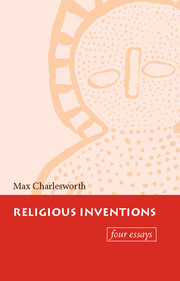3 - Universal and local elements in religion
Published online by Cambridge University Press: 04 August 2010
Summary
INTRODUCTION
Kierkegaard says somewhere that Hegel built a gigantic edifice of theory and then lived in a little hole alongside it. Kierkegaard's ad hominem sarcasm was intended to show that Hegel's philosophy had no relevance for the business of living; but, in a certain sense, one could say that it is strictly impossible to live in any house of theory: the abstract air is too thin to breathe. One cannot live in a world of universality, where universal principles are supposed to apply to all beings (including human beings) at all times and places, any more than one can speak a universal language. In the last resort, one has to live in a particular place and culture and one has to speak a local language.
As Aristotle keeps reminding us throughout the Nicomachean Ethics, ethics is a practical body of knowledge, for ultimately a decision about good and bad ways of human living has to be made in particular circumstances here and now. General rules, about temperance and justice and courage are, of course, necessary, but I, this moral agent, have then to judge what temperance and justice and courage mean in the specific situation in which I find myself. That judgment requires imaginative interpretation: for example, is returning a weapon to a friend, who has since become psychotic and suicidal, properly described as a matter of ‘justice’ or rather as an irresponsible breach of true friendship?
- Type
- Chapter
- Information
- Religious InventionsFour Essays, pp. 81 - 104Publisher: Cambridge University PressPrint publication year: 1997

